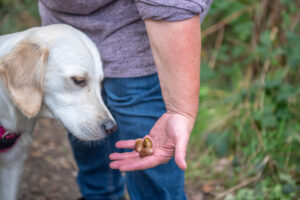The Risks of Acorns to Dogs: What You Need to Know
Autumn brings stunning scenery and cooler weather, but it also introduces hidden dangers for dogs. One such hazard comes from acorns, which may seem harmless but pose serious health risks for dogs. Understanding the risks of acorns to dogs can help you protect your furry companion from potential harm.
Understanding the Dangers
Acorns, commonly found scattered across parks and gardens during autumn, contain tannins and other toxic substances that can harm dogs if ingested. Although the likelihood of severe poisoning is relatively low, the consequences of consuming acorns can still be significant. It is crucial to be aware of the symptoms and take action if your dog ingests any.
Symptoms of Acorn Poisoning
Dogs that ingest acorns may display various symptoms that range from mild to severe. Some of the most common signs include:
- Vomiting and diarrhoea
- Abdominal discomfort
- Reduced appetite
- Severe dehydration
- Potential liver and kidney issues
If you observe any of these symptoms, especially after a walk in a park or garden, seek immediate veterinary care. Timely treatment can prevent the situation from escalating.
Prevention Strategies
Preventing your dog from eating acorns is essential but requires ongoing vigilance. Always supervise your dog during walks, especially in areas where oak trees are present. Training your dog to respond to commands like “leave it” is invaluable and can prevent them from picking up acorns. Bringing toys or treats on walks can help keep your dog distracted and less likely to consume harmful items.
Treatment Options
If your dog does ingest acorns, the treatment will depend on the severity of the symptoms. In mild cases, medication to control vomiting and pain may be sufficient. For more serious cases, hydration therapy may be required to address dehydration. In extreme situations where acorn consumption causes blockages in the digestive tract, surgery may be necessary to remove the obstruction.
Conclusion
The risks of acorns to dogs are real but preventable. By staying vigilant, training your dog to obey commands, and knowing the signs of acorn poisoning, you can help keep your dog safe during autumn walks. Immediate action and veterinary care are essential if ingestion occurs, ensuring your dog’s health and well-being.


Leave a Reply